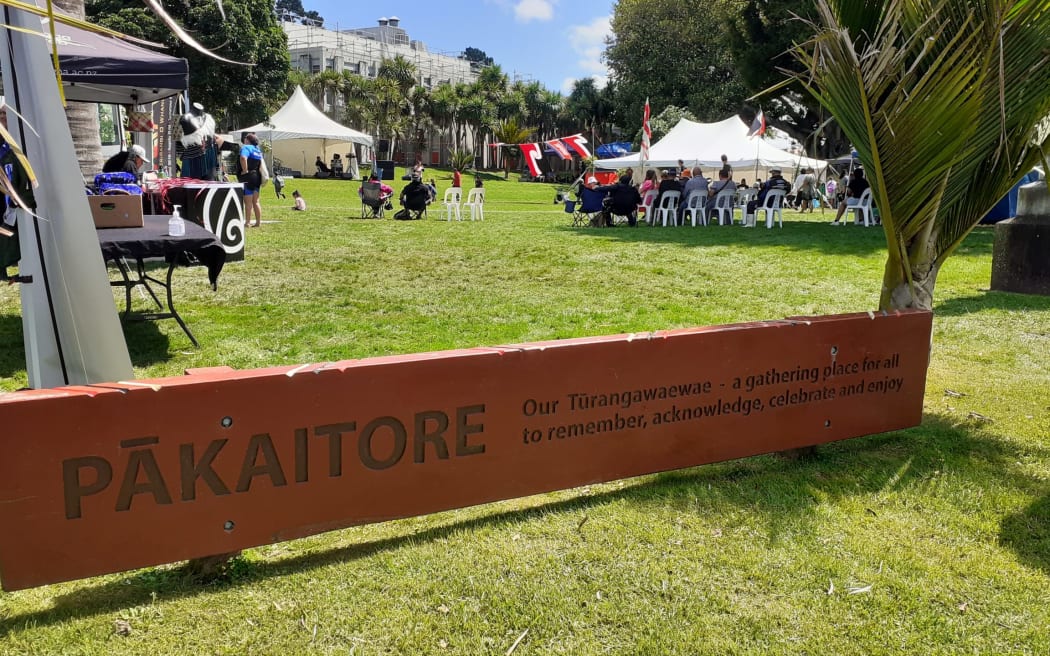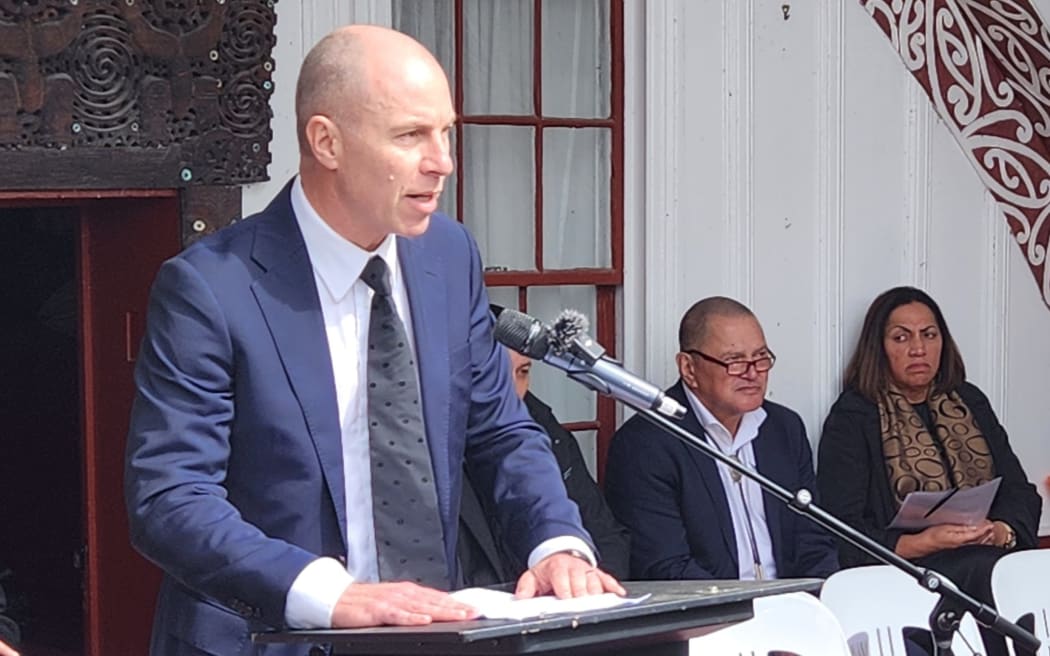
Whanganui mayor Andrew Tripe says the annual celebrations marking the 1995 occupation of Pākaitore is an opportunity for education. Photo: LDR / Moana Ellis
The relationship between Māori and the Whanganui council today is “vastly different” compared to 29 years ago, mayor Andrew Tripe says.
Tripe attended the annual Pākaitore celebrations on Wednesday, honouring the day in 1995 when Whanganui Māori began a 79-day occupation to reclaim the riverfront site and highlight grievances over the river and land.

The historic site, then controlled by the council, had been renamed Moutoa Gardens by settlers after the battle of Moutoa upriver in 1864, and it housed many of the city’s monuments and memorials.
Tripe said the occupation caused a lot of division in the community and nationally.
“I do remember it. From Whanganui District Council’s perspective, its relationship with iwi and hapū now is vastly different and better.
“Let’s look at 29 years ago compared to today: the council at the time came down to Pākaitore to order the protesters of the day to move out.
“I’m here to celebrate what [the protesters] did. That’s the difference.”

Whanganui mayor Andrew Tripe. Photo: LDR / Moana Ellis
Speaking in te reo Māori, Tripe was one of the speakers during yesterday’s pōwhiri.
He said the annual anniversary of the protest was an opportunity for education.
“You need to go back into history, back into the 1800s, to understand what it was like to be Māori.
“I don’t think people like me – Pākehā – have fully understood what it is to have a te ao Māori worldview. That’s our challenge today.
“They’ve been asked to be part of our worldview, the Statute of Westminster worldview. We need to understand the te ao Māori perspective.
“We’re back here 29 years from that day to celebrate but also to educate our people to understand what those 79 days of protest were about.”
Hundreds gathered on Wednesday to remember the protests, including children from kohanga reo and kura. The mayor said it was great to see tamariki and rangatahi marking the day and understanding their history.
“That’s the great thing. They’ve got this in them already and that’s really important. It shapes their identity and what they stand for, and [means they] hold onto the history that has gone before us but is also ahead of us,” Tripe said.
A critical part of the community is iwi and hapū, who were here a long time before us, he said.
“We’ve come a long way. We’ve got a very healthy relationship and I saw that today when I got lots of hugs and hongi. That’s great but there’s more to go.”
On the controversial decision by the Pākaitore Historic Reserve Board to remove the country’s oldest war memorial from the Whanganui reserve, the mayor confirmed the monument would be relocated.
“It’s going to be removed from that site potentially, there is still a process to go through, but it will still remain somewhere.
“It’s honouring history, it’s not eradicating history at all. We’re not trying to say that it didn’t occur.”
Whanganui River iwi representatives called for the removal of the 158-year-old Weeping Woman monument last year, saying its inscription condemning upriver Māori for “fanaticism and barbarism” was offensive and a blight on the history of Whanganui.
Tripe said the battle took place 80km upriver from Whanganui, and therefore the statue was not commemorating the site of a historic event, just the fact that the battle happened.
The monument also commemorates the 15 Māori and one European killed in the 1864 battle with upriver Māori at Moutoa island.
LDR is local body journalism co-funded by RNZ and NZ On Air.